The Bonans, with a population of 12, 212, mostly live in close communities in Jishishan Bonan-Dongxiang-Sala Autonomous County of Ganus Province. A few can be found in Linxia Hui Autonomous Prefecture of Gansu and Xunhua County of Qinghai Province.
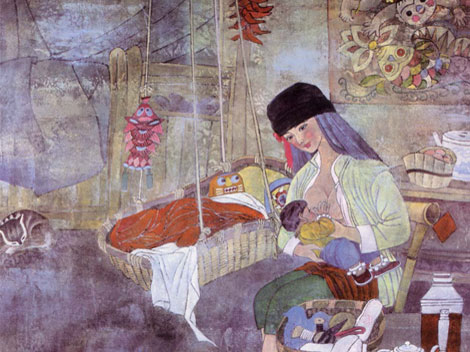
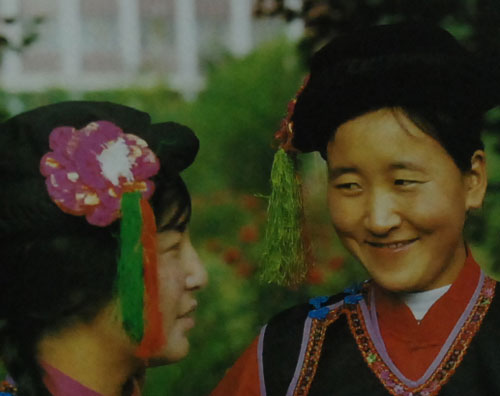 The Booan women's headdresses
The Booan women's headdresses
Located in the southwest of Gansu Province, the Bonan area borders on Linxia County in the southeast and Xunhua Salar Autonomous County of Qinghai in the west The Yellow River separates this area from Minhe County of Qinghai and Yongjing County of Gansu in the north and northeast. At the foot of Jishi Mountain and on the upper reaches of the Yellow River, the fertile land is suitable for farming and raising animals, Wheat, maize, potato, qingke barley and raising animals. Wheat, maize, pear and thin cover walnut are popular products.
In history, the Bonan people were called "Huihui" or "Bonan Hui". After the founding of new China, they took the name Bonan Nationality.
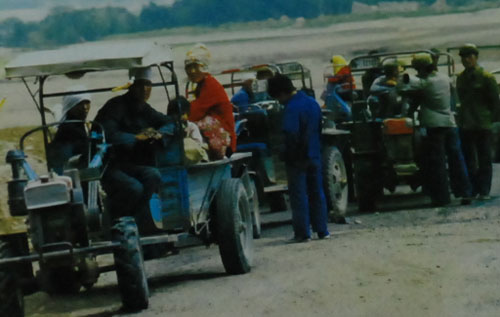 Walking tractors help Bonan people to get rich.
Walking tractors help Bonan people to get rich.
The Bonan language, without a script, belongs to the Mongolian group in the Altaic family. Most Bonans speak Chinese. Customs and habits closely resemble those of the neighboring Hui and Dongxiang minorities.
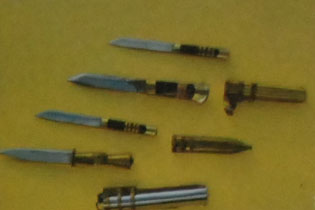 Bonan knives
Bonan knives
The Bonans engage in farming and herding as well as handicraft. In a fairly early time, the Bonans knew how to smelt iron and possessed high skills of making knives. Their sharp, durable and exquis?ite hunting knives, praised as Bonan Knives, are popular among local people.
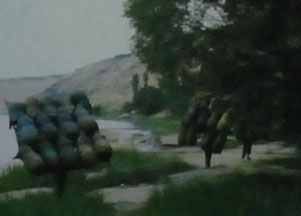 The Bonans living in the upper reaches of the Yellow River use these sheepskin rafts to cross the river.
The Bonans living in the upper reaches of the Yellow River use these sheepskin rafts to cross the river.





